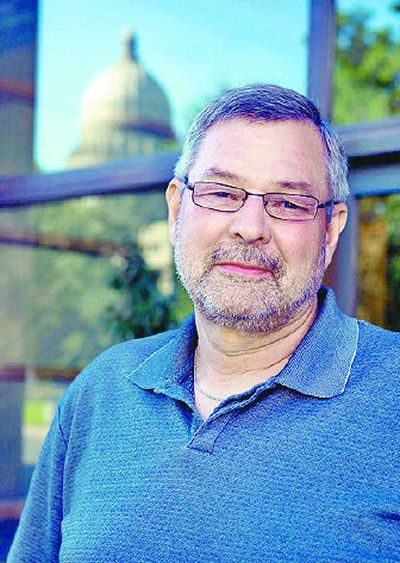BLM nominee preaches balance

BOISE – The man President Bush wants to oversee the U.S. Bureau of Land Management says the federal government, in an era of rising prices and ever-growing demand for oil and gas, cannot ignore the untapped resources stored beneath millions of acres of public lands across the West.
At the same time, James L. Caswell, a veteran forester nominated by Bush this week to head the oft-maligned agency, believes balance is the key to managing public land and that technology can lessen the effect drilling, logging and grazing can have on the landscape and wildlife.
“We just have to develop the resources that we have,” Caswell told the Associated Press during an interview from his office Friday. “You can’t just write this stuff off. It’s a terribly important activity for the good of the country
“But I also don’t believe that every tree ought to go to the mill. So much of it becomes site specific. But if the objective is to develop a resource, most of the time I think we can find a way to solve the problems surrounding it.”
Caswell, 61, who heads Idaho’s Office of Species Conservation, would replace Kathleen Clarke, who resigned in February. Jim Hughes has served as acting director since then.
If approved by the Senate, Caswell would lead an agency that is caretaker of 258 million acres – about one-eighth of the land in the United States, most of it in the West.
With that much acreage under its guidance, the BLM is often at the center of bitter and passionate debates over how those lands should be used and managed.
A report issued last month by Environmental Working Group and the National Wildlife Federation claims drilling on federal lands in five Western states doubled over the past decade, squeezing out hunters and threatening habitat for antelope, mule deer, grouse and other species.
Caswell said it’s too soon to outline priorities or an agenda for the final months of the Bush’s presidency. But environmentalists caution that Caswell’s arrival coincides with a time when many presidents begin pondering ways to burnish their legacy.
“There’s not going to be a lot of time for Jim, so I would guess a lot of what will happen will be status quo,” said Rick Johnson, executive director of the Idaho Conservation League.
“But it’s also a pretty serious promotion … and I think he’s going to be looking for something more to do than just say, ‘I came in and walked out the clock.’ “
Since taking over Idaho’s species conservation office in 2000, Caswell has orchestrated a plan for managing Idaho’s 9.3 million acres of federal roadless areas within national forests and managing wolves once federal protection is lifted.
Timber executive Bill Mulligan said both plans earned wide public approval in conservative Idaho in part because each originated at the local level.
“Jim let it all develop from the ground up rather than something that was strong-armed from the top of state government,” said Mulligan, CEO of Three Rivers Timber.